Planting 30,000 Trees to Secure a Sanctuary for Orangutans

Get news, updates, & event Info delivered right to your inbox:
Reforestation for Orangutan Habitat Conservation
Biodiversity is one of the most important reasons we plant trees, which is why we're so excited to share this project in partnership with The Orangutan Project and KEHUS! Eastern Sumatra’s Bukit Tigapuluh Ecosystem, which is one of the last wild places in Southeast Asia. Named after the many forested hills in the region, it forms part of a biodiversity hotspot and refuge for Critically Endangered flagship species like the Sumatran tiger, elephant, and orangutan — of which there are only 14,000 left in the wild. In fact, it’s one of only 2 reintroduction sites for orangutans in all of Sumatra.
At the center is a National Park, declared in 1995. The entire protected area, including buffer zones, is almost 200,000 hectares and is home to 2 indigenous tribes. Despite this, parts of Bukit Tigapuluh Ecosystem are threatened with illegal logging, while other areas have been severely degraded. To help, One Tree Planted has teamed up with The Orangutan Project and KEHUS, a local Indonesian foundation, to restore forests surrounding an orangutan jungle school sanctuary where orphaned orangutans are taught how to live in the wild before being re-introduced.
How Reforestation Can Help
To reverse the effects of deforestation, over 30,000 native trees are being planted across 50 hectares in the buffer zone surrounding the sanctuary. A suite of native tree species will help jumpstart forest recovery, while providing food and habitat for wildlife. Native hardwoods like Ironwood and Meranti are being planted to restore degraded areas, while fruit trees like Durian and Jack Fruit are included because of the important role they play in the orangutan diet.
To accomplish this, native seeds are being collected in Bukit Tigapuluh by local farmers to be propagated in a project nursery. Outside the conservation zone, economically important tree seedlings like vanilla, jungle honey, and rattan will be distributed to local farmers as part of a complementary agroforestry project.
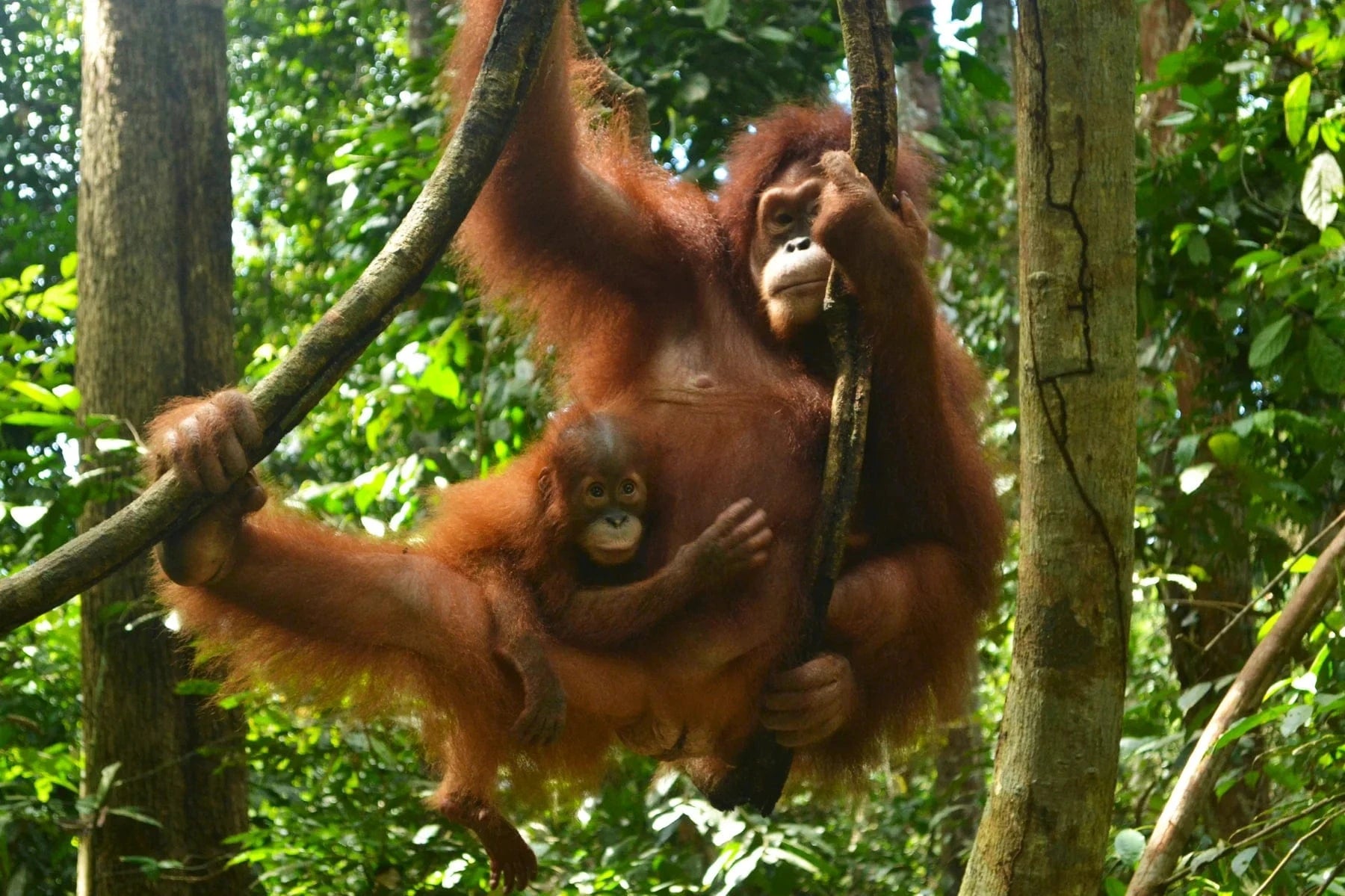
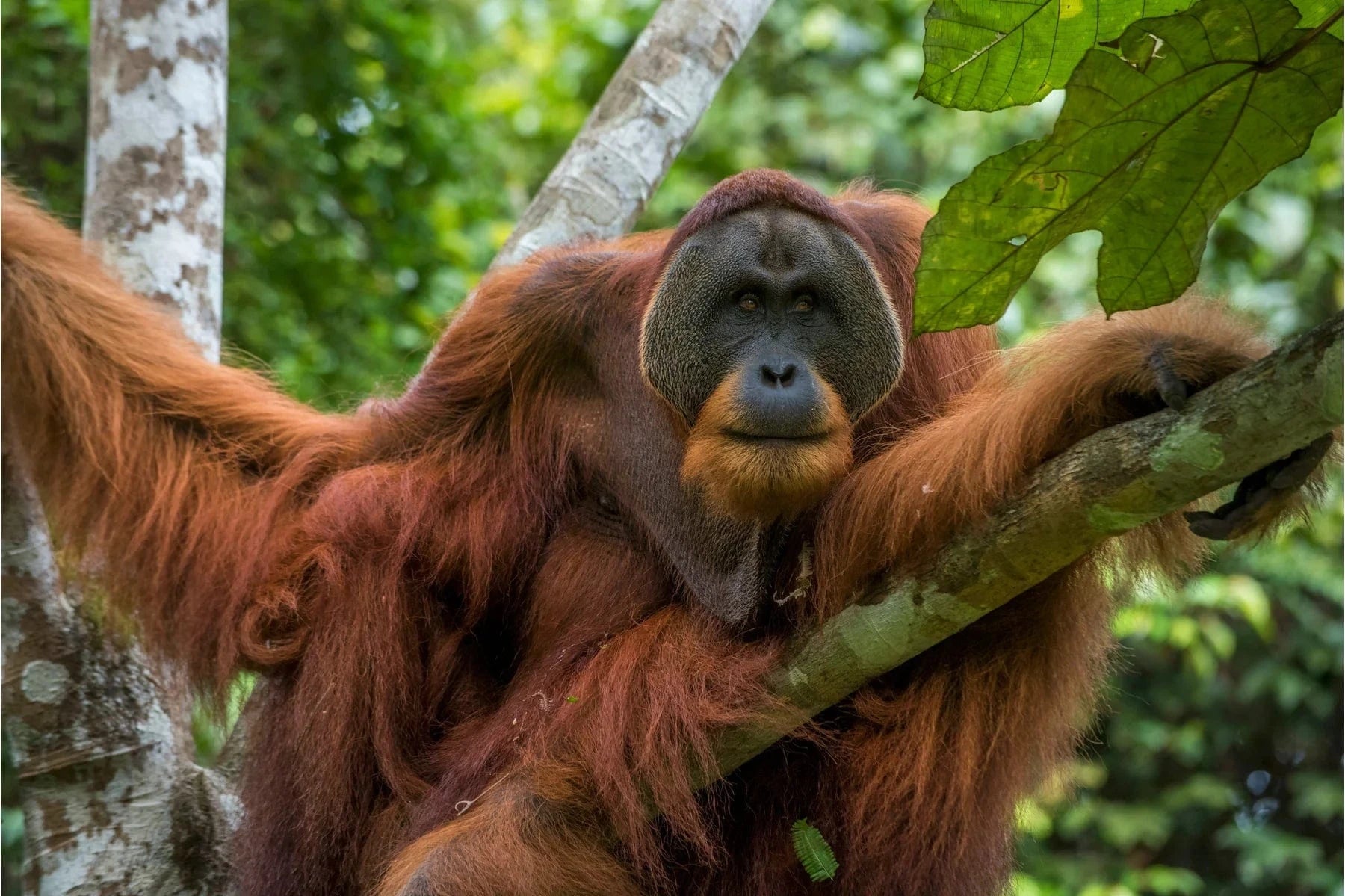
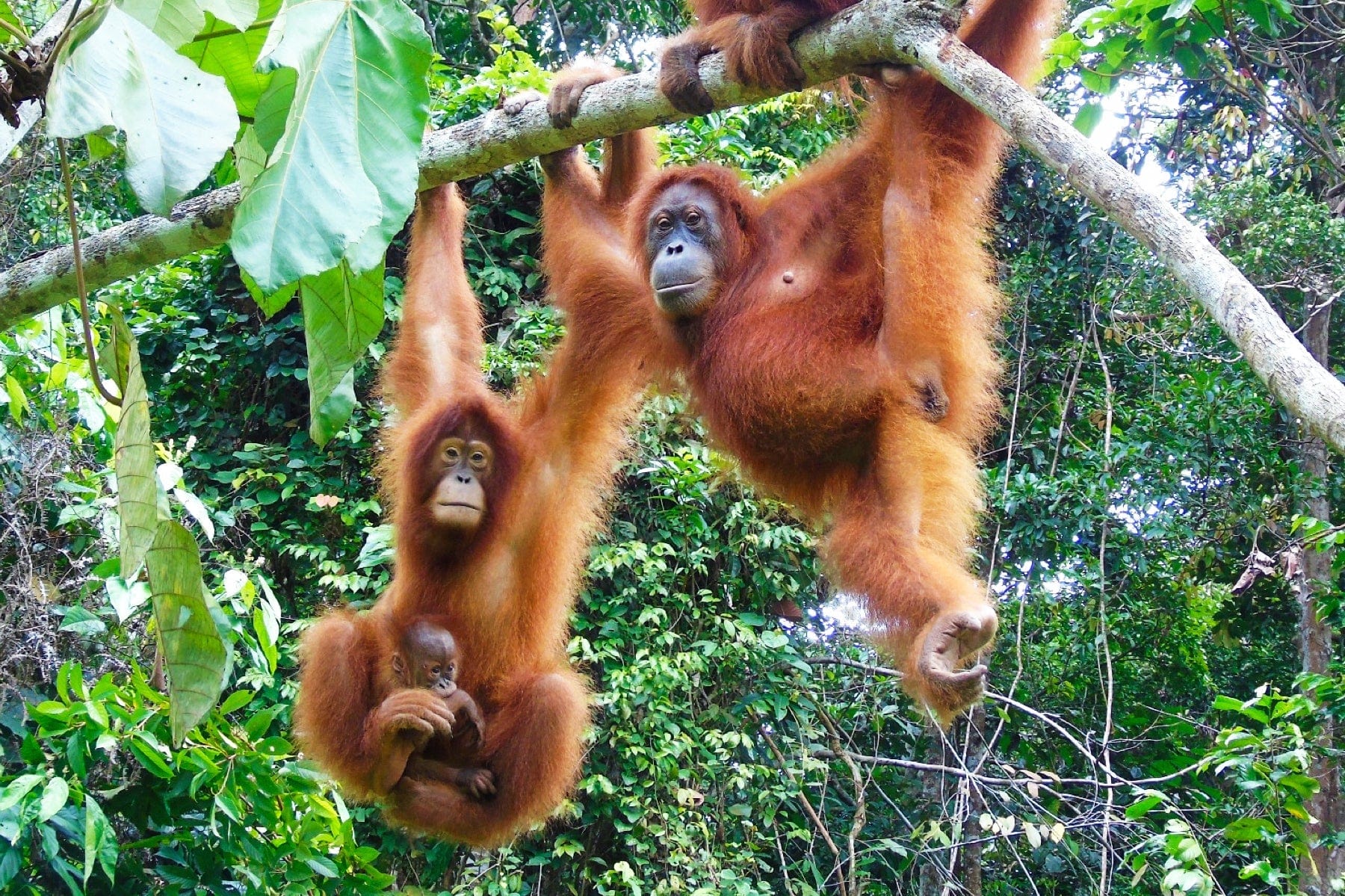
A Community-Based Approach
Focusing on agroforestry and alternative income sources for local farmers in the buffer zone is crucial for many reasons. Much of the deforestation that threatens Bukit Tigapuluh is driven by economic dependence on logging and mono-crop palm oil development. The returns on these activities are marginal, while the damage to the forest and ecosystem is severe. By pairing reforestation efforts with agroforestry, farmers can transition to more sustainable, forest-friendly livelihoods, while gradually restoring critical forest habitat for orangutans.
To deepen economic and social impact, local farmers will become stewards of the forest restoration effort by collecting the seeds, maintaining the nurseries, and planting the seedlings. Local staff also live on site or in surrounding districts, making the effort truly community-based. The ultimate goal of the project is to reverse deforestation in priority conservation habitat by engaging the local farmers to form small reforestation teams responsible for planting in specific areas.
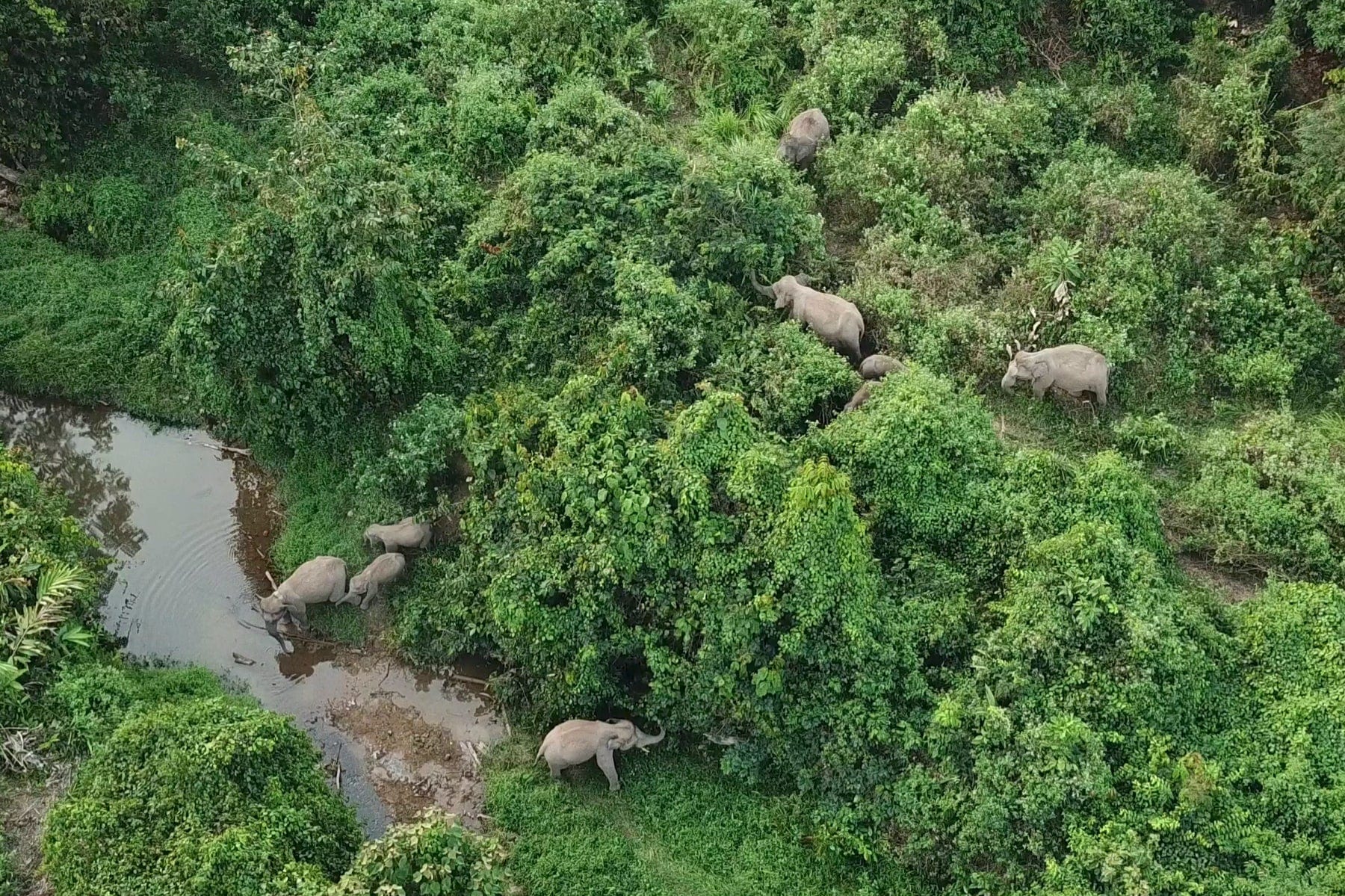
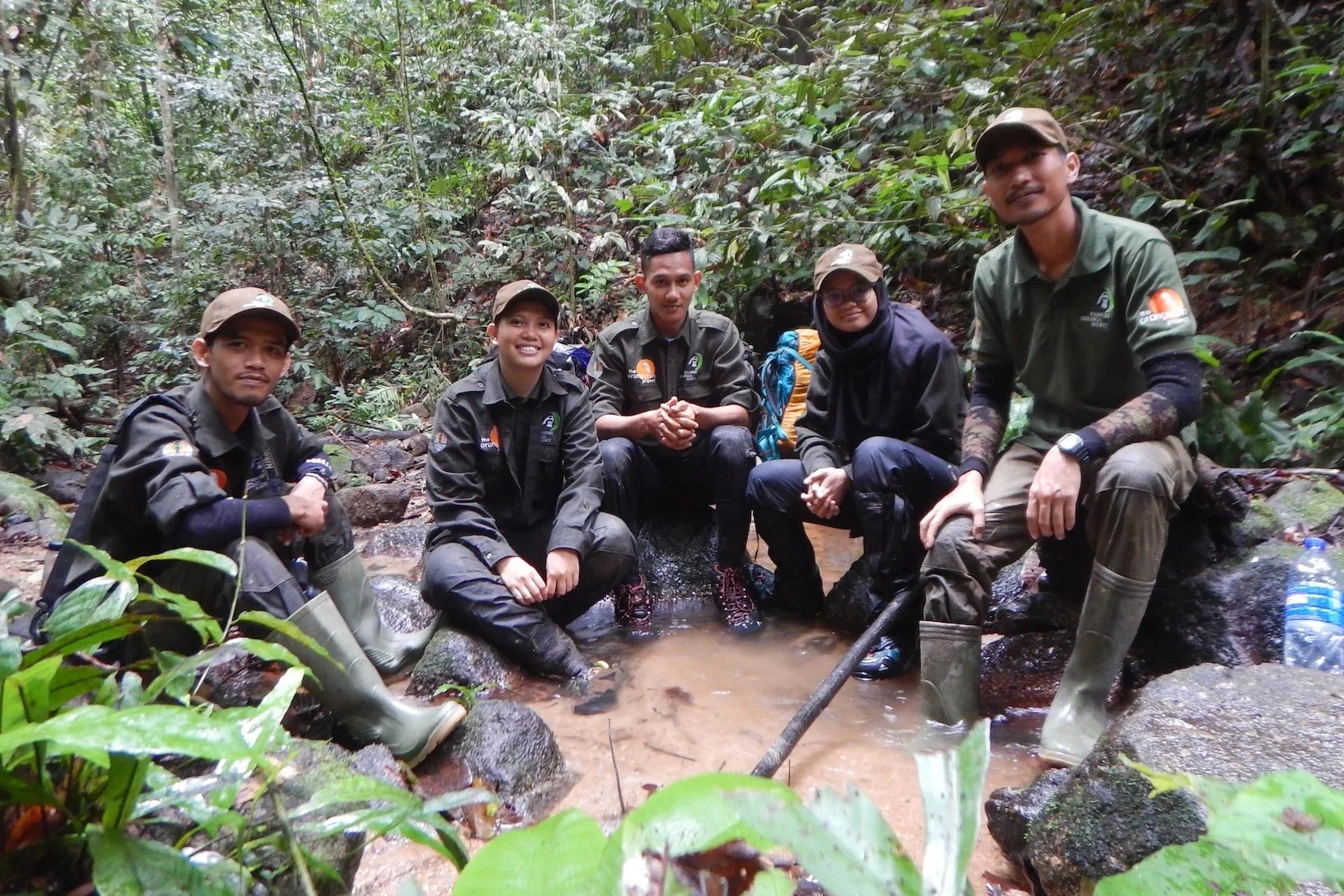
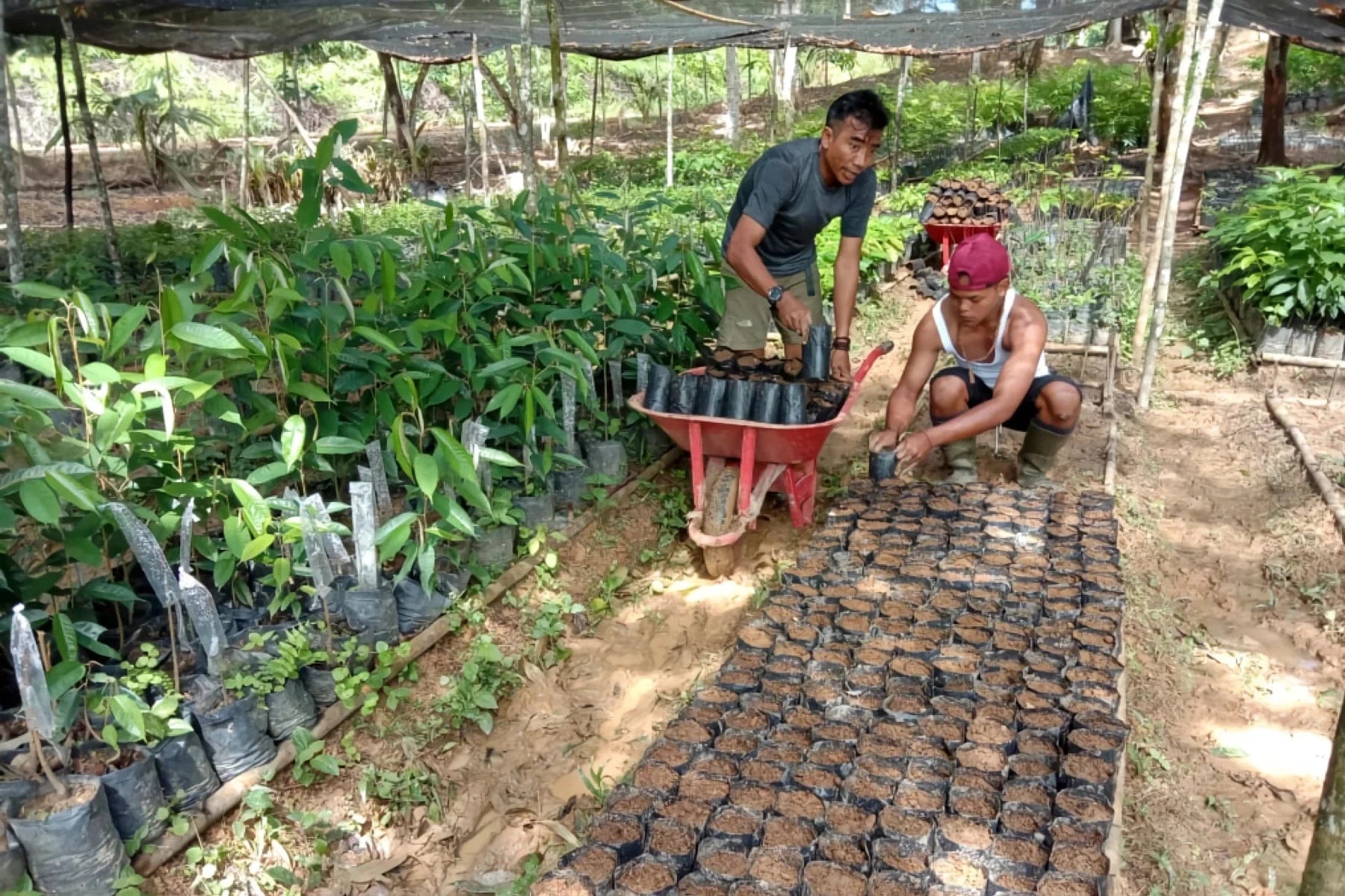
Win - Win Solutions
The Orangutan Project and KEHUS have been building grassroots change from the ground up through reforestation, re-wilding, and sustainable development in the Bukit Tigapuluh Ecosystem since 2001. In addition to restoring critical habitat for orangutans, it’s estimated that over time, the newly planted trees will sequester 3,000 tons of CO2 every year.
Coming together to plant trees is one of the best and easiest ways to make a difference in reversing the damage done to nature and the negative effects of climate change. We are grateful to work with amazing people and partners like The Orangutan Project and KEHUS to create win - win solutions for local communities and the environment. And thanks to dedicated donors like Bangladeshi fashion model, ROLA, who made a significant contribution to fund this initiative.
Plant trees in Asia and other areas to help support biodiversity!
Get news, updates, & event Info delivered right to your inbox:
Related Posts
Sustainable Diet Tips: How to Eat Healthy While Protecting the Planet
13/01/2026 by Meaghan Weeden
Agroforestry Explained: Principles, Benefits, and Case Studies
08/01/2026 by Meaghan Weeden
Plant Your Resolution: Making a Global Impact With The Grove
01/01/2026 by One Tree Planted
Popular On One Tree Planted
How to Reduce Waste: 21 Practical Zero Waste Tips for Everyday Living
23/12/2025 by Meaghan Weeden
Inspirational Quotes About Trees
16/12/2025 by Meaghan Weeden
The 9 Oldest, Tallest, and Biggest Trees in the World
11/12/2025 by One Tree Planted
Fundraising Disclosures

Be Part of the Restoration Movement
The Grove is more than just a monthly giving program: it's a vibrant community of individuals who are dedicated to reforestation and environmental restoration on a global scale.





